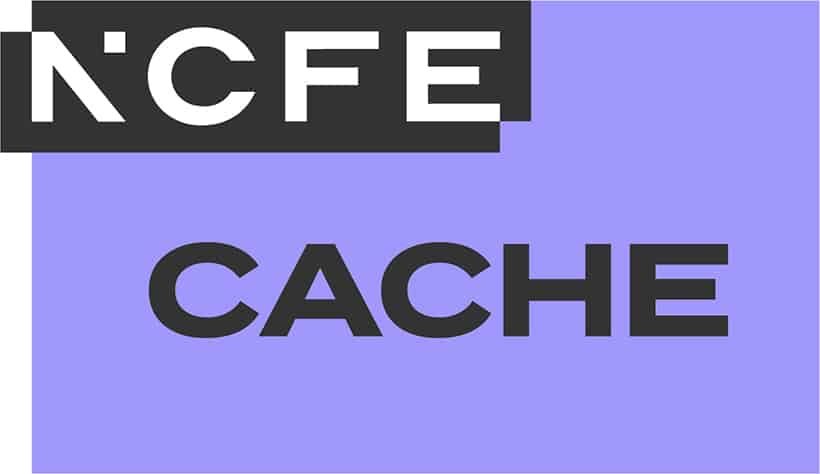Overview
Adult social care is a booming industry, and it’s growing every year – by 2025, it’s estimated that 2.63 million workers will be needed to fill roles within this sector. If you’d love to become a champion of health and social care and take on a wonderfully fulfilling role in helping those who need it most, this accredited course will get you there.
NCFE CACHE Level 3 Adult Care Diploma: what you’ll learn
You’ll learn how to promote the health, safety, and wellbeing of the people you care for, as well as how to minimise pain and discomfort. You’ll examine important issues such as safeguarding and protection, and infection and prevention. Above all, you’ll learn how to treat the people you look after with dignity, respect, and compassion. As you learn, you’ll gain practical experience with a placement in an adult care setting, giving you the fully rounded education you’ll need to practice with confidence.
This Level 3 Diploma in Adult Care is ideal for anyone wishing to work at a residential home, a day centre, domiciliary care, or within clinical healthcare. You’ll enjoy the freedom to study in your own time, at your own pace, with engaging learning materials.
In this NCFE CACHE Adult Care course, you will:
- Develop the knowledge needed to work in the healthcare sector
- Examine the fundamental topics and subjects in health and social care
- Gain practical work experience that’ll give you the advantage on certification
- Thrive under expert supervision through your assignments at your own pace
What you'll learn
This unit explores the concepts of equality, diversity, inclusion and human rights which are fundamental in an adult care setting. You’ll be able to summarise the legislation, policies and codes of practise and how they influence your role.
In the second unit, you’ll study the legislation and codes of practise that relate to information handling within social care, such as the Data Protection Act and GDPR. You’ll also learn the correct way to handle information yourself when performing your duties, and how to keep records in line with the Caldicott Principles.
Firstly, you’ll learn exactly what it means to be a competent adult care professional, and how to evaluate your own performance and develop in your role through feedback from others. You’ll also gain an understanding of how to identify objectives for your professional development, and how to work alongside others to create a personal and professional development plan. You’ll also learn the benefits and scope of ‘reflective practise’, which involves keeping a journal of your observations and ideas.
In unit four, you’ll learn how to work in a person-centred way, and why it’s so important. You’ll also consider the best ways to establish consent when providing care or support, implement and promote active participation, and support the individual’s right to make choices. You’ll also study the importance of risk-assessment, and how to promote the wellbeing of the adults you care for.
You’ll be encouraged to consider your own personal wellbeing and the impact this can have on a range of factors. You’ll look at how it can affect others, your own practise and your own health. Here you’ll also explore different strategies to manage stress and the sources of support to maintain wellbeing.
In unit six, you’ll gain the knowledge and skills required to promote and implement health, safety and wellbeing in the workplace. Here you’ll be able to identify health and safety legislation, policies and procedures whilst demonstrating safe practices.
Introduce yourself to national and local policies in relation to infection control, as well as the responsibilities of both the employer and the employee. You’ll look at how to minimise the risks of infection outbreak, as well as how to use PPE correctly and maintain a high level of personal hygiene.
It’s important to understand that people with disabilities have the same rights as everyone else when it comes to taking risk, and in this unit, you’ll learn how to approach this matter in a positive and person-centred fashion. You’ll also understand how to support the people in your care when it comes to risk taking, and understand your duty of care.
Next, you’ll take a look at some of the current legislation and national guidelines which relate to moving and positioning adults in your care. You’ll examine the relevant anatomy and physiology, understand how to minimise risk, and discover when to seek advice and assistance from others.
Moving on, you’ll discover how to assess and monitor pain and discomfort, and take a look at some approaches to pain management. You’ll also discover how to record and report on an individual’s pain levels, in order to effectively communicate with other staff members.
In this unit you’ll come to understand the causes of infection and common illnesses that may occur as a result of poor practises. You’ll be able to identify the difference between both infection and colonisation and pathogenic and non-pathogenic organisms, the areas of infection and the types
caused by different organisms. You’ll also explore the methods of transmission, the conditions needed for organisms to grow, the ways infection enters the body, and key factors that may lead to infection occurring.
Study the correct ways of maintaining a clean environment in accordance with national policies. You’ll discover how to decontaminate an area due to risk of infection, and good practice when dealing with waste materials.
Here you’ll study the central importance of communication in adult care and ways to overcome barriers to meet individual needs and preference in communication.
Learn the importance of maintaining health and wellbeing in an adult care setting. Including the relationship between identity, self-image and self-esteem and the impact on an individual’s wellbeing. This unit highlight how to access a range of services and resources and the early indicators of physical and mental health deterioration. Understand how to use the appropriate tools to monitor and report these changes.
Understand the nature of working relationships to work in ways that are agreed with the employer and work in partnership with others.
Learn to address dilemmas and conflicts that may arise where there is a duty of care and how to respond to comments and complaints. You’ll also learn how to recognise adverse events, incidents, errors and near misses and to prevent their occurrence in the future.
Aimed at those working in any setting where an adult may be accessing care or support. Learn the important areas of safeguarding individuals from different types of abuse, how to recognise the risks and the best practise if abuse is suspected or disclosed.
Uncover the legislation and underpinning principles surrounding mental capacity in adult care. You’ll explore the role in applying these principles in practise whilst developing an awareness of how restrictive practice may occur and recognising when and how to raise concerns.
Here you’ll learn how to support individuals with specific communication needs. You’ll gain the knowledge and skills to help you address personal interaction and the use of special methods and aids to promote communication.
Extra info
Awarding Body
Endorsed by
Click here to confirm it's real with OfQual.
Course Outcome
At the end of this course, successful learners will receive the following qualification: NCFE CACHE Level 3 Diploma in Adult Care. This means that it is independently accredited at a level of learning equivalent to Level 3 on the National Qualifications Framework (NQF) for England, Wales and Northern Ireland.
NCFE CACHE has been developing courses in the childcare, education and healthcare sectors since 1945 and is one of the most reputable awarding bodies for qualifications in the UK and overseas. Practitioners working in these areas are much more employable having gained NCFE CACHE certification and many employers specifically ask for their qualifications when taking on members of staff.
Potential Employment Settings: After you’ve completed this course, you could apply for roles in a variety of settings, including:
- Residential/nursing homes
- Domiciliary care
- Day centres
- Clinical healthcare
Further Study: There are also plenty of options should you want to move on to further study. The following courses are ideal progression routes in adult care:
- Level 4 Diploma in Adult Care
- Level 5 Diploma in Leadership for Health and Social Care and Children and Young People’s Services
- NCFE Level 3 Diploma in Personal Training
Alternatively, you may opt for qualifications in management, lead practitioner roles or a specialist course relating to your place of work.
How is this course assessed or examined?
This course is assessed in two ways:
Tutor-marked assignments (TMAs)
Each unit is followed by a tutor-marked assignment (TMA) which will be completed at the end of each module and marked by your tutor.
You will not be required to take an external exam with this course as your portfolio of evidence is internally assessed by us and externally quality assured by the awarding body. Your tutor will provide feedback on your work, and should there be any amendments required, they will outline what is needed for you to complete that assignment.
Observation (included)
This course requires up to four observations. This means that somebody will need to observe you in practice. This could be in a workplace or a voluntary placement. These practical observations will be carried out by an Oxbridge Assessor (we’ll visit you) and that's included in the course price.
We offer up to four complimentary external observations for this course to any student on the UK mainland, which is enough to complete the course.
More information about practical observations
Entry requirements
In order to achieve this qualification, you must be at least 16 years old and working, volunteering or on practical placement as you will need to show competence in both knowledge and skills.















